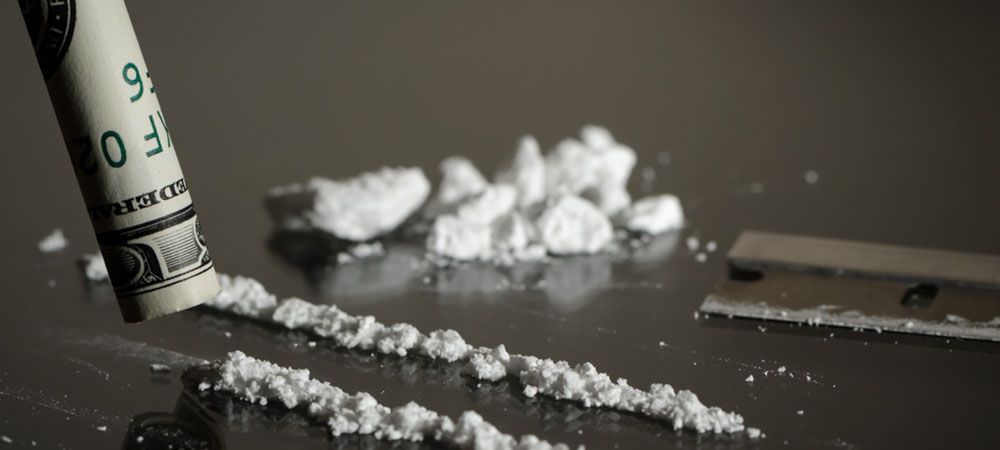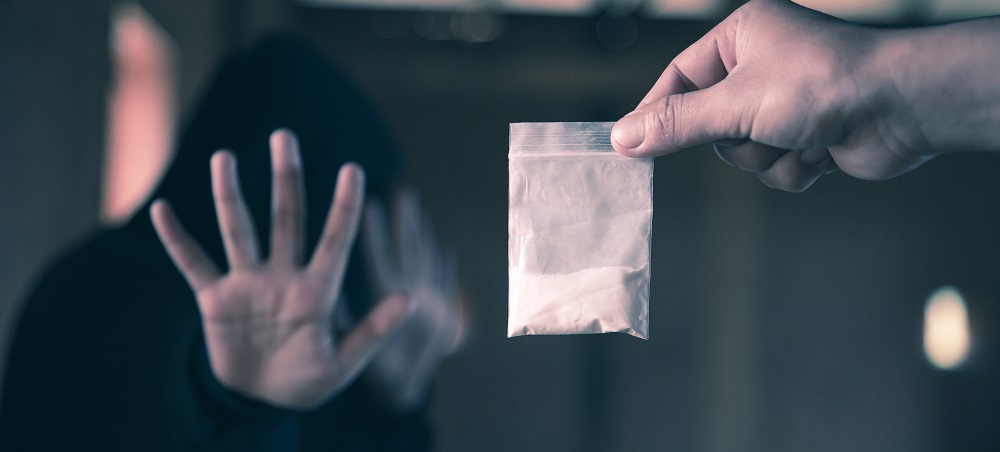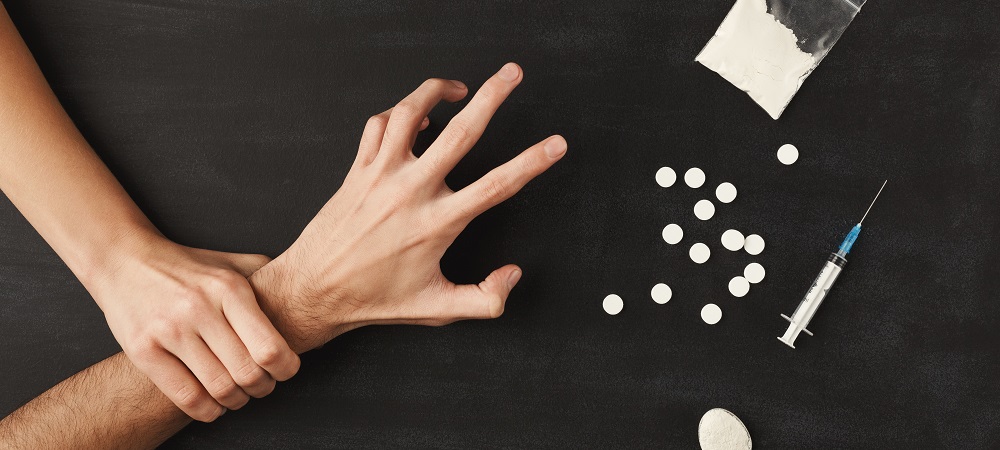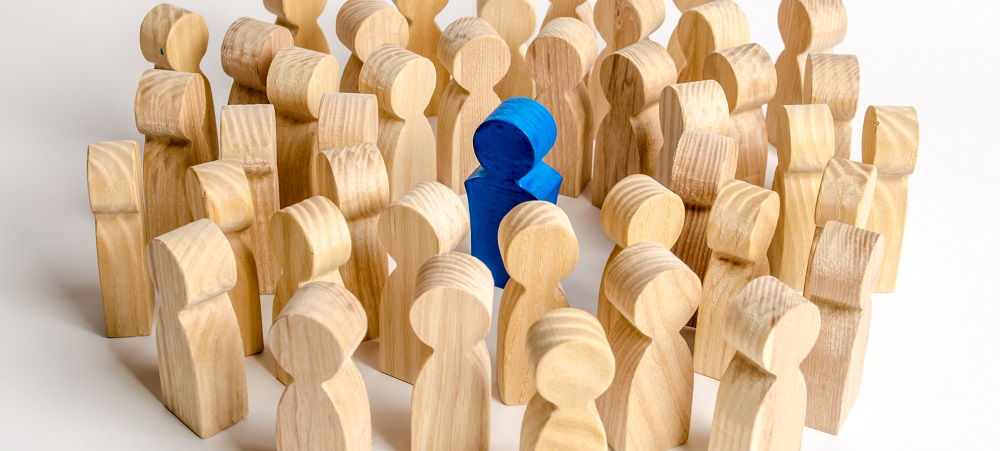There are many signs and symptoms of cocaine addiction. If you abuse the drug, there are chances that you will experience one or more of these symptoms. Sometimes you may not even notice you have these symptoms. And the longer it takes to identify them, the worse it becomes.
However, if you detect these signs early enough, you reduce the risks they pose to your health and wellbeing. This article includes vital information about the various signs and symptoms associated with cocaine addiction. You will also learn more about cocaine addiction and know where to find help if you are struggling with it. There is so much to know, so let’s get started.
What is Cocaine Addiction?
Cocaine is a very popular recreational substance. It is a white powder, usually snorted, injected, or smoked. Some of its effects include mood changes, increased concentration, lowered shyness, etc.
Cocaine also has some adverse effects that users may experience when the drug starts leaving their system. This includes agitation, confusion, irritability, anxiety, etc. Being a potent stimulant, it is very easy for people to get addicted to cocaine.
The drug creates a short but intense high, leaving its users in a state of euphoria. Cocaine users love the drug because of the effect it has on them. Hence, they begin to abuse it, leading to several signs and symptoms of cocaine addiction.
The reason why cocaine users get addicted is that the feeling they get from taking it lasts only a short while. Hence, they take it more often to satisfy their cravings for the drug. However, the more you use cocaine, the more your system tolerates it.
With your body tolerating it and managing its effects, you find yourself taking in more doses of the drug. You do this because you want to feel those effects you want. This only leads to more and more increase in your cocaine dosage. Before you know it, you become addicted to the drug and can do nothing without it.
The fact that you can’t do anything without the drugs is one of the cocaine abuse signs. However, that is not the only problem that comes with cocaine addiction and abuse. Cocaine addiction and abuse lead to many more symptoms, as you will find out in this article. Before then, here are some reasons why the drug can be so addictive.
Why Am I Prone to Getting Addicted to Cocaine?
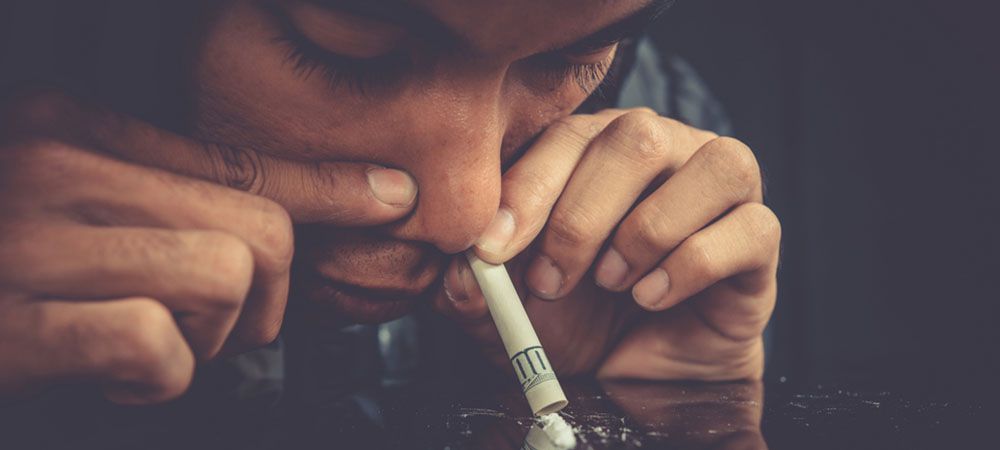
If you take cocaine, you must know how to recognize cocaine addiction. Most users love taking the drug because of the effects the drug has on them. Hence, they are likely to get hooked on it before even realizing it. One of these effects is the drug’s ability to make you exhibit behaviours different from your normal lifestyle.
For one, you may find yourself doing unusual things you never imagined. Also, the urge to have another dose of the drug will become so strong that you may sell your property for it. You will be driven by the drug and not be in control of yourself. That is how terrible cocaine addiction can be.
Hence, it is important for you to be well aware of these danger signs and know when they begin to manifest. Knowing the dangers that lie ahead with using cocaine may prevent you from indulging in its use.
Factors that Increase The Risk of Cocaine Abuse
Cocaine addiction comes about as a result of several factors. These include genetic background and some environmental risk factors,
If you are from a family or environment with a history of cocaine addiction, you are at risk of developing an addiction issue. However, the fact that you are from such a background or live in a high-risk environment is not a certainty that you will become addicted to the drug.
If you are repeatedly exposed to cocaine, the chances that you will begin to take the drug becomes increased. Other things that may cause you to take cocaine include lack of education, easy access to the drug, and peer pressure. You are also prone to the drug if you reside in an area with a high crime rate.
Some family risk factors for cocaine addiction include poor indiscipline, family conflicts, and relationship problems. Others include poor parental supervision, low income, and poor communication in the family.
You are also at risk of cocaine abuse if you have mental problems like depression. Victims of several forms of abuse may also seek solace in cocaine or other hard drugs.
Early Signs I May Be Abusing Cocaine
Some of the early warning cocaine abuse signs include a change in your mood, functionality or behaviour. If your mood changes rapidly from that of excitement to that of depression, it is an indicator of cocaine abuse. If you suddenly begin to have suicidal or homicidal thoughts or think about doing crazy things, you may have abused cocaine.
Cocaine abusers also show excessive anger. This is especially the case when they are confronted about their use of the drug. They suddenly exhibit a change in their behaviour and change their friends within a short period. Other warning signs include a tendency to steal or manipulate those around them.
Other warning signs and symptoms of cocaine addiction also include a drastic change in one’s physical appearance. This happens due to a drop in personal hygiene. If you abuse cocaine, an early sign of impending trouble is a drop in your functionality. You will have low or no motivation, miss deadlines, and stay away from your friends or loved ones.
These are only early warning signs of cocaine use. If, after noticing these signs, you continue to use the drug, it can lead to more severe signs and symptoms of cocaine addiction. Find out about these signs in the next section.
The Cocaine Addiction Symptoms To Know

The signs and symptoms of cocaine addiction are divided according to the three parts of the body it affects. When you use cocaine, it affects your brain, central nervous system, and other parts of your body. These effects are not the same for everybody. Similarly, several factors affect the way people react to the drug.
These factors include how you take the drug, the amount you take, the effects of the added ingredients in the drug, and its purity. Another factor affecting the impact you will feel from cocaine use is the emotional state you are in while taking it.
Other factors include your physical condition, as well as the regularity in which you use the drug. Let’s now take a look at the effects of cocaine on your whole body, starting with the brain.
Related article: Why You Should Not Attempt Cocaine Withdrawal On Your Own
Effects on the Brain

When your brain’s response to various chemicals is altered, it is one of the signs of cocaine use. Your brain responds to certain chemicals like dopamine, serotonin, acetylcholine, norepinephrine, and gamma-aminobutyric acid. These chemicals are collectively called neurotransmitters. Most of the complications people face from using cocaine are due to these neurotransmitters.
Cocaine abuse induces these neurotransmitters to work at heightened levels. This leads to common signs and symptoms of cocaine addiction such as the following:
- Anxiety
- Headache
- Confusion
- Psychosis
- Dizziness
- Nausea.
Effects on the Central Nervous System

When you take cocaine, you experience pleasurable effects. These include a burst of energy, excitement, varying levels of euphoria, and increased sociability. You also feel less hungry or tired, have increased strength and mental alertness, and may even feel no pain. It makes you feel superhuman like you are on top of the world.
Other signs and symptoms of cocaine addiction where the nervous system is concerned include:
- Talking too much
- Laughing
- Dilated pupils.
- You may also experience nausea
- Vomiting
- Vertigo
- Headache.
These symptoms may progress to emotional instability, lightheadedness, irritability, and restlessness.
Other cocaine abuse signs in the central nervous system include apprehension and tremors. Most cocaine addicts are unable to sit in one place. Mostly, they also have to deal with twitchy muscles. There can also be cold sweats and muscle jerks. Cocaine addicts also experience grinding of teeth, hallucinations, feelings of paranoia, or cocaine psychosis.
There are more serious signs of cocaine use, such as severe headaches, loss of consciousness and seizures. It’s possible to also experience brain bleeding, hyperthermia, stroke, loss of body functionality, and coma.
Once these happen, the person must be taken to an emergency department. Afterward, such a person must begin cocaine addiction treatment immediately. There are many centres for cocaine addiction treatment in Canada. However, you must make sure to choose one that suits your specific needs.
Cocaine Abuse Effects on the Ear, Nose, and Throat
Most cocaine users consume the drug by sniffing or snorting it through the nose. This often leads to them having varying degrees of sinus or nasal symptoms of drug use. These include nasal crusting, frequent nosebleeds, nasal irritation and stuffiness.
Cocaine addiction can cause damage to the mucous membrane of both sides of the cartilage separating your nostrils. This results from the reduced blood supply to the septum, nose picking, crusting, and drying. It eventually leads to a hole in the septum, causing bleeding in the nose.
The nose begins to make foul secretions. A whistling sound can also be heard when breathing, which is known as coke noise.
Effects of Cocaine Use On the Lungs
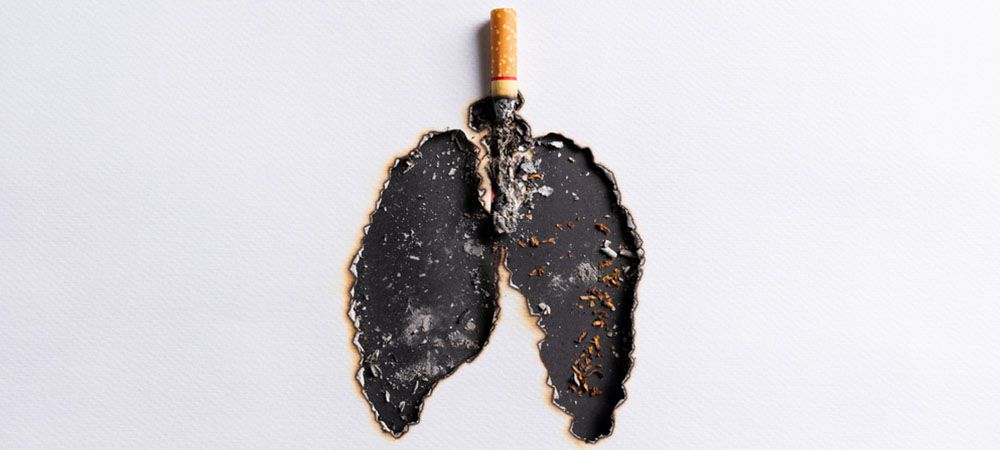
If you smoke cocaine, you are prone to lung and breathing problems. A brain stimulation known as the head rush results from smoking cocaine due to the lung’s blood supply and large surface area.
If you smoke cocaine in its freebase, crack, or paste forms, you will probably use water pipes, glass pipes, or cigarettes. You do so by heating the pipes with matches or butane lighters.
These pipes, matches and additives you add to the cocaine you smoke, such as marijuana, often leave residues. These residues can cause some severe signs and symptoms of cocaine addiction. Some of these cocaine abuse signs include chronic coughing or chronic bronchitis.
You may also cough up black and bloodless phlegm. This excessive coughing will cause you to experience shortness in your breaths. You may also have chest pain and other breathing difficulties.
Some people smoke cocaine using several smoking techniques. One of these techniques involves them inhaling deeply and holding their breath. They do this to maximize the amount of cocaine they inhale and absorb. However, this is a very dangerous thing to do.
It can lead to lung collapse, causing a sharp pain in the chest. Other symptoms include neck pain, difficulty swallowing food, shortness of breath, respiratory failure, and death.
Problems with the Sympathetic Nervous System
Your flight or fight response is the sole function of the sympathetic nervous system. This is the system responsible for controlling adrenaline in your body. You may experience severe signs and symptoms of cocaine addiction in this system if you continually abuse the drug.
Some of the abuse signs you may have are high blood pressure, a high heartbeat rate, and narrowing of blood vessels. You are also likely to experience a heart attack and chest pain with excessive use of cocaine.
With excessive cocaine abuse, the sympathetic nervous system gets overstimulated. This leads to high blood pressure and rapid heart rates. Cocaine addicts also experience vasospasm, which can lead to death.
More Cardiovascular Problems
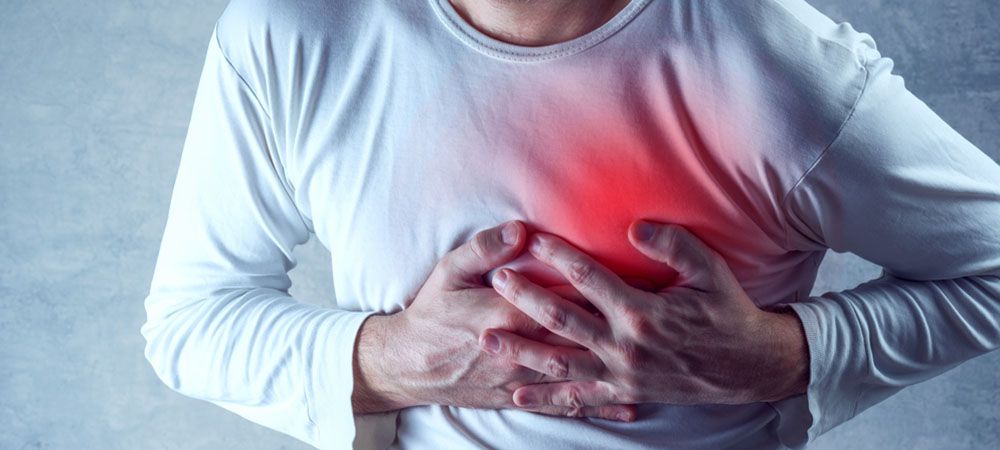
If you abuse cocaine, you may experience some other signs of cocaine use in your cardiovascular system. Some of the cardiovascular problems you can face include a fast rise in your heart rate. You may also have an abnormality in your heart rhythms. There is also a risk of having a condition called cardiomyopathy.
This is a disease of the heart muscle. It can also be a result of rupturing or dissection of the aorta, causing its walls to weaken. Using cocaine excessively also leads to the narrowing of the arteries leading to the heart. It eventually causes a reduction in the amount of blood the heart receives.
When this happens, a condition known as angina arises, leading to a heart attack. Excessive cocaine users also experience hardening and narrowing of their coronary arteries. These signs and symptoms of cocaine addiction are sometimes fatal and should be avoided.
Risk of Infections
Persons who use cocaine through injections risk having infections. These infections can lead to a slew of signs and symptoms of cocaine addiction, such as cellulitis, abscesses, and tetanus. Cellulitis and abscesses occur at the sites of injection. Other symptoms include abscesses of the brain and heart valve infections.
These infections occur mainly when the injections used are not sterilized. Cocaine addicts that use this non-sterile form of injecting themselves are also prone to contagious viruses. These include hepatitis B and C, HIV, which they usually incur when they share needles.
Other signs and symptoms include swelling, pain, and redness of the injection site. There can also be nausea, vomiting, lack of appetite, jaundice, etc.
Cocaine Addiction Effects on Pregnant Women
It is not good for pregnant women to engage in cocaine use during pregnancy. There are many dangers attached to doing such. Besides the usual signs and symptoms of cocaine addiction, the baby in the womb is also at risk. It can also lead to complications in pregnancy.
Some cocaine addicts use the drug in conjunction with other drugs, nicotine, or alcohol. These practices are dangerous and affect pregnancy adversely. These effects may lead to miscarriage, stillbirths, birth defects, and death.
Risks to Cocaine Smugglers

People who smuggle cocaine also experience signs and symptoms of cocaine addiction. Known as body packers or stuffers, these persons swallow packets of cocaine. They also stuff these packets into some of their body openings. They do this to avoid being detected by security agents at airports or borders.
However, sometimes, these packets can break or leak inside the body. When this happens, the body quickly absorbs the cocaine. The carrier begins to exhibit cocaine abuse signs such as seizures, excess intoxication, and death.
Signs I May Be Addicted to Cocaine
Some of the signs of cocaine addiction revolve around the adverse effects the drug use causes. For instance, excessive use of cocaine leads to a drop in academic or job performance. You will also begin to withdraw from social places and isolate yourself from others.
An addict will also crave the drug more than ever before. This craving can lead to many mental problems and lead to poor decision-making. The craving comes from the need to have the amazing effects of cocaine use.
One way to recognize cocaine addiction is through the withdrawal symptoms you experience. As the drug’s effects begin to wear off, you feel the need to have more of it. There is difficulty in abstaining from the drug, which leads to other problems.
It is already mentioned that cocaine addiction leads to self-isolation. However, it is even more problematic that addicts, despite knowing the adverse effects they face, continue to use it. That is the height of cocaine addiction, despite the numerous psychological problems. At that point, you must find help and do so quickly.
Finding Help
If you notice you are having some of the signs and symptoms of cocaine addiction, you must act quickly to stop it. First, you must realize you have a problem and that you are addicted to the drug. Without that realization, nothing else will happen. Once you accept you have a problem, you begin to take the necessary steps to solve it.
The next step is to find treatment for cocaine addiction in Canada. Research about your addiction and identify some of the cocaine abuse signs you are experiencing. Seek professional help immediately. Based on the level of your addiction, some medications and therapies will help in treating your addiction.
One thing you must note, however, is that cocaine addiction is difficult to overcome. You will experience a lot of challenges along the way. It is not a quick process. Your addiction to the drug did not happen in a day. Hence, your treatment will not be a day’s journey too.
You also need to understand that not every person reacts to treatment in the same way. While some people may overcome their addiction in a month, it may take others years to do so. The timeline of withdrawal and addiction treatment varies according to factors.
These factors include the duration of addiction, the dosage used, and the environment. Other factors include the environment, polysubstance dependence, and presence of other health or mental issues.
Due to the severe nature of cocaine abuse symptoms, it is best to treat it in a facility. Cocaine addiction treatment facilities offer both in-patient and out-patient treatments. In in-patient facilities, the patients reside in the treatment center during treatment. However, out-patient facilities don’t require patients to live in the facility.
These treatment centers help patients to recover from their addiction via several behavioural therapies. These therapies seek to address the root cause of the addiction. They are very effective and eliminate a patient’s dependence on the drug.
Some of these therapies include Contingency Management, CM, which rewards addicts for abstaining from cocaine. It also encourages social interactions and positive thinking.
Another type of treatment is cognitive behavioural therapy, CBT, which focuses on why you are abusing cocaine. It also alters the dangerous ways addicts think that causes them to use cocaine.
We are Here For You
Now, you know the signs and symptoms of cocaine addiction. You are also aware of the dangers that lie ahead if you continue to abuse the drug. You have to take action to stop your addiction.
Contact 1000 Islands Addiction Rehab & Treatment Centre for addiction treatment programs.
Related article: Common Signs of Cocaine Abuse
